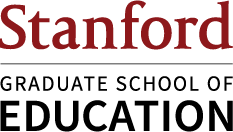Award Winners
RREG: The Race, Religion & Ethnicity Group


The RREG will provide a space for GSE students researching issues of race, ethnicity and/or religion to collaborate, and learn from one another. All students within the GSE are welcome to attend the workshop. Education research from a range of disciplines will be accepted. Students will present at RREG if they are seeking feedback, collaborators, resources and more. With this group encouraging a community and serving as a resource, the GSE will come one step closer to building and sustaining diversity within our scholarly community.
Project QED

Project QED serves the LGBTQ+/SGL community (lesbian, gay, bisexual, trans, queer, questioning, intersex, asexual, and pansexual / same gender-loving) within the GSE and seeks to forge connections with similar groups throughout the university. We have two primary goals: (1) Build community among affiliated students, faculty, and staff and (2) Increase the visibility of / amplify discourses around gender and sexuality to expand the GSE’s inclusion and scholarship.
Language, Equity, and Educational Policy (LEEP)


The mission of Language, Equity, and Educational Policy (LEEP) (http://leep.stanford.edu/) student group is to provide a forum for dialogue across diverse strands of research in language and education and to establish a resource network for graduate students, faculty and community members. We aim to bring issues of language, equity and diversity to the forefront of educational research and practice, to support our community of emerging scholars, and to bring together faculty and scholars within and beyond Stanford to discuss these issues.
Social Emotional Learning (SEL) Group

Social Emotional Learning (SEL) is defined as the process in which individuals develop both interpersonal and intrapersonal skills – including self-awareness, self-management, social awareness, relationship skills, and responsible decision making. The Social Emotional Learning (SEL) group will connect the GSE community with the broader SEL stakeholders in order to catalyze the shared knowledge on this emerging field.
Lost in Translation: Between Experience and Education

The GSE community brings together students of diverse cultural, ethnic and geographic backgrounds. As a community, we bring to the table a wide range of contexts and experiences that give each one of us a unique perspective about education, its challenges and goals. Lost in Translation: Between Expereince and Education offers a space to recognize these dissonances and to unpack and analyze them is crucial for our intellectual growth, for our capacity to contribute to the discourse at GSE and for the well-being of our community.
rEDesign



rEDesign is a one-day interactive conference in which members of the GSE will collaboratively design resources that support learning and increase equity and accessibility in education for under-resourced communities. In our brief graduate experiences at the GSE, many of us often feel unequipped in approaching the landscape of educational issues in low-income, under-resourced communities or school systems in the United States, and more specifically, in the Bay Area. By bringing together the knowledge, skills, and interests of the diverse GSE community, we hope to elevate the conversation of these issues within the GSE and encourage greater action and service of our skills to these areas of higher need.
Theory in Learning Reading Group

The Theory in Learning Reading Group will hosts informal reading group that will allow students to explore various philosophical, historical and sociological questions and theories in education. The reading will vary between “classical” texts and new scholarship, from Durkheim, Marx, Bourdieu, Foucault, and Weber to Rancière, Popkewitz, and Biesta. Additionally, the group will also explore relevant texts outside of education such as issues related to political economy and American history.
Mathematics Education Critical Pedagogy and Social Justice Forum

The Mathematics Education Critical Pedagogy and Social Justice Forum will provide a space for educators to meet monthly to explore the intersection of theory and practice when it comes to critical pedagogy and the social justice in mathematics learning. At each meeting the group will begin by discussing chosen readings that speak to this intersection, and then move into a workshop style discussion of a lesson plan or unit plan contributed by one of the participants, in an attempt to immediately apply the theory from the readings to the practice of planning and teaching in our own classrooms.
The Education Incubator: Redesigning Solutions


The program invites participation of the GSE community to a series of themed sessions over the school year to discuss and collaborate with members of the Stanford community in other fields about the issues related to education for refugees and migrant students. The events foster the exchange ideas about education-related challenges faced by underrepresented communities in different settings.
Analysis of Video and Interaction Data (AVID) Collective


The analysis of video data has become a highly prevalent and generative qualitative method within the learning sciences. Many influential and relevant studies in education have gleaned great insight from working with such data. The AVID Collective would build on these skills, involving more GSE students and providing the ongoing collegial support needed for long-term research endeavours.
